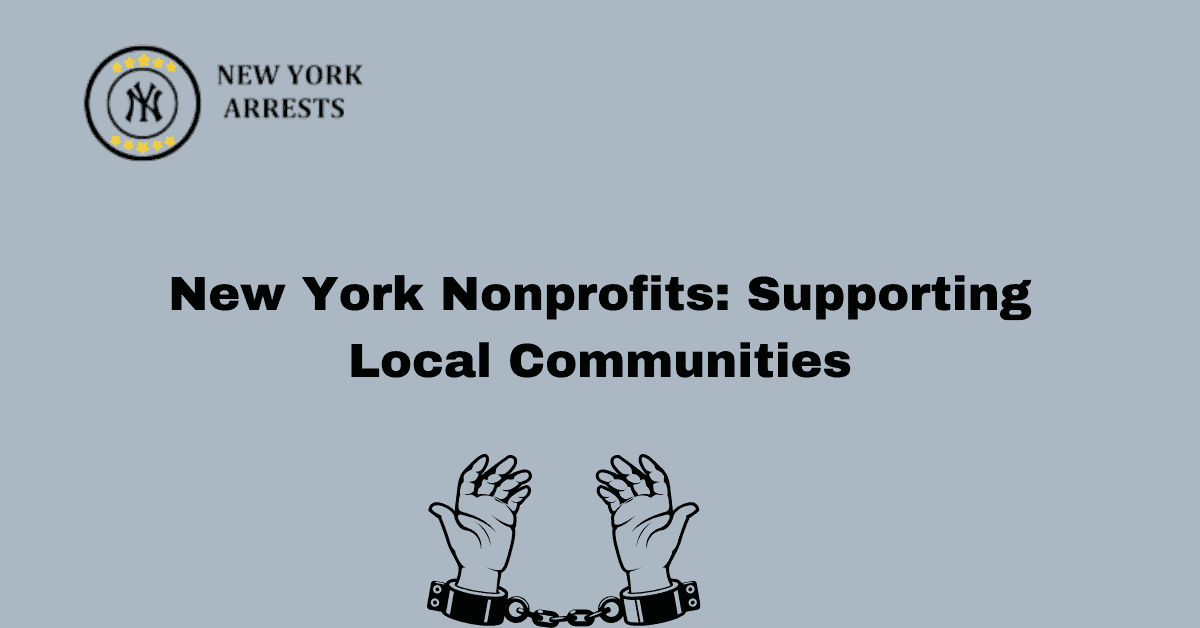New York Nonprofits: Supporting Local Communities
New York is home to a vibrant and diverse nonprofit sector that plays a vital role in supporting local communities. These organizations work tirelessly to address a wide range of social issues, from poverty and homelessness to education and healthcare. Through their dedication and tireless efforts, New York nonprofits are making a positive impact and improving the lives of countless individuals and families.
The Importance of Nonprofit Organizations in New York
New York is home to a vibrant and diverse nonprofit sector that plays a vital role in supporting local communities. These organizations work tirelessly to address a wide range of social issues, from poverty and homelessness to education and healthcare. Through their dedication and tireless efforts, New York nonprofits are making a positive impact and improving the lives of countless individuals and families.
Addressing Poverty and Homelessness
One of the key focuses of New York nonprofits is to address poverty and homelessness in the state. These organizations provide essential services such as shelters, food banks, and job training programs to help individuals and families in need. By offering support and resources, they aim to break the cycle of poverty and provide a pathway to a better future for those affected.
Enhancing Education Opportunities
Education is a fundamental right, and New York nonprofits understand the importance of providing equal access to quality education for all. They collaborate with schools, communities, and government agencies to develop programs that support student achievement, promote literacy, and provide educational resources to underserved communities. Through their efforts, New York nonprofits are working towards creating a more equitable education system.
Improving Healthcare Access
Access to affordable and quality healthcare is crucial for the well-being of individuals and communities. New York nonprofits play a vital role in improving healthcare access by offering clinics, free screenings, and health education programs. They also advocate for healthcare policy changes and work towards reducing healthcare disparities among different populations.
Promoting Arts and Culture
New York is renowned for its rich arts and cultural scene, and nonprofits in the state are dedicated to promoting and preserving this heritage. They support artists, musicians, theaters, and museums, ensuring that the arts remain accessible to everyone. Through their initiatives, New York nonprofits contribute to the cultural vitality of the state and enhance the quality of life for its residents.
Supporting Environmental Conservation
New York nonprofits are actively engaged in protecting and preserving the environment. They work towards sustainable practices, promote conservation initiatives, and raise awareness about climate change and environmental issues. By partnering with government agencies and communities, these organizations strive to create a greener and more sustainable future for New York.
Advocating for Social Justice
Nonprofit organizations in New York are at the forefront of advocating for social justice and equality. They fight against discrimination, racism, and injustice through grassroots movements, policy advocacy, and community organizing. These organizations empower marginalized communities and work towards creating a more inclusive and equitable society for all.
Collaboration and Partnerships
New York nonprofits understand the power of collaboration and partnerships. They actively collaborate with other organizations, businesses, and government agencies to maximize their impact and reach. By working together, they can pool resources, share expertise, and create innovative solutions to address complex social issues.
In conclusion, New York nonprofits are an integral part of the state’s social fabric. Through their tireless efforts, they address poverty, enhance education opportunities, improve healthcare access, promote arts and culture, support environmental conservation, advocate for social justice, and foster collaboration and partnerships. These organizations play a vital role in creating a better and more inclusive future for the communities they serve.
FAQs
What is the role of New York nonprofits in supporting local communities?
New York nonprofits play a crucial role in supporting local communities by addressing various social, economic, and environmental challenges. They provide essential services, such as healthcare, education, housing, and food assistance, to those in need.
How do New York nonprofits contribute to the local economy?
New York nonprofits contribute to the local economy by generating jobs and economic activity. They employ a significant portion of the workforce and often collaborate with businesses and government entities to drive economic growth and development.
What types of programs and services do New York nonprofits offer?
New York nonprofits offer a wide range of programs and services tailored to the specific needs of local communities. These can include youth development programs, mental health services, environmental conservation initiatives, and support for vulnerable populations.
How can individuals support New York nonprofits?
Individuals can support New York nonprofits by volunteering their time, donating funds or resources, and advocating for their causes. By actively engaging with nonprofits, individuals can make a positive impact on their local communities.
What are the challenges faced by New York nonprofits?
New York nonprofits face various challenges, including limited funding, increasing demand for services, and navigating complex regulations. They often rely on donations and grants to sustain their operations and fulfill their mission.
How are New York nonprofits regulated?
New York nonprofits are regulated by state and federal laws, as well as oversight agencies. They must adhere to specific reporting requirements, financial transparency, and governance standards to maintain their tax-exempt status and ensure accountability to their stakeholders.







